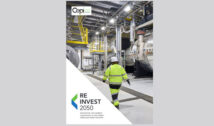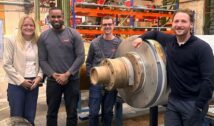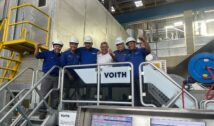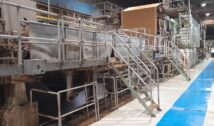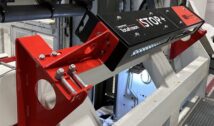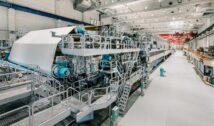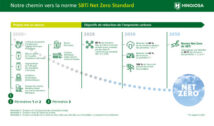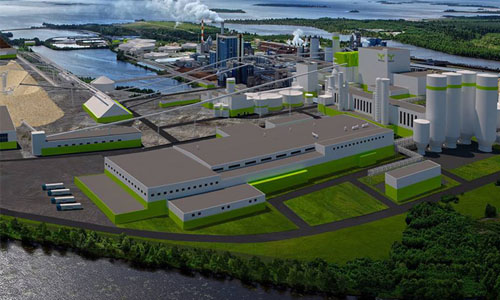
Metsä Fibre, part of Metsä Group, and the construction company Lehto Group have signed a preliminary agreement on the construction of a port warehouse for the bioproduct mill planned to be built in Kemi, Finland. The warehouse to be built in the Port of Ajos, Kemi, would serve as the new mill’s pulp warehouse before the products are shipped to customers. The floor area of the port warehouse would be nearly 40,000 square metres, and the construction would take around two years. Warehouse’s high-ceiling elements would be manufactured from Metsä Group’s wooden elements. The degree of Finnish origin in the delivery by the Kempele-based Lehto would be around 80 per cent.
“We want to work with the best professionals in each field to build a modern bioproduct mill in Kemi. We require our partners to commit to the goals of the project in terms of safety, schedules and quality. Lehto Group operates according to these principles and we have every chance of carrying out a successful project together. In addition to this, we appreciate Lehto’s way of utilizing Metsä Group’s wood products in the implementation of the warehouse. The port warehouse is an important part of the bioproduct mill and its logistics chain,” says Jari-Pekka Johansson, Project Director of Metsä Fibre’s Kemi bioproduct mill.
The construction phase of the port warehouse will be accelerated by Lehto’s modern production concepts of industrial building.
“Lehto is an experienced operator in warehouse and logistics projects. We have standard concepts which allow the rapid commencement of the project. We are also going to increase the efficiency of the site phase by using industrial prefabrication. The large wooden roof elements to be used in the project will be made at Lehto’s own factories in Finland,” says Lehto Group’s EVP of Business Premises Jaakko Heikkilä.
The Kemi bioproduct mill project is progressing according to plan and a number of preliminary agreements have been signed. Based on these agreements, the project’s degree of Finnish origin is estimated to be high, approximately 70 per cent. The employment impact of the possible construction phase is estimated to be nearly 10,000 person-years, of which more than half will be carried out in Kemi. The total number of different persons working during the construction phase is estimated to be about 15,000.
If implemented, Kemi bioproduct mill – which would operate entirely without fossil fuels – would produce 1.5 million tonnes of softwood and hardwood pulp per year, as well as many other bioproducts. The investment would secure the existing 250 jobs at the current Kemi mill. Through its direct value chain, the bioproduct mill would employ a total of around 2,500 people in Finland, which would be 1,500 people more than the employment effect of the current pulp mill in Kemi. The new bioproduct mill in Kemi would increase the value of Finnish exports by more than EUR 0.5 billion a year and the mill’s annual income effect would be also EUR 0.5 billion a year. The preconditions for making the decision on the EUR 1.5 billion investment in the Kemi bioproduct mill are expected to be in place in early 2021.










